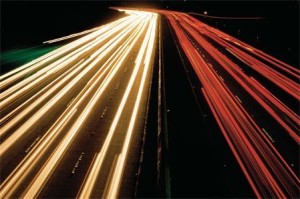 How often do we read things like “200 Killed in Rioting” or “50 Missing in Flood” or “40 Killed in Panic Escape at Street Festival”? Add to that terrorist attacks. How little we react. Overloaded with information, our emotions are hard-pressed to appropriately respond. We’ve moved beyond shock to numbness. Understandable, really – numbness is a self-defence mechanism that kicks in when we’re threatened with excess. Two hundred years ago they barely knew what was happening in the next village; now we have a minute-by-minute, blow-by-blow of what’s happening in every nook and cranny of the entire planet Earth. No wonder we no longer respond, and no wonder the media has to try more and more drastic measures to pluck our heart strings. At some point we just stop looking, listening, or caring; again, it’s a simple reaction to too much stress.
How often do we read things like “200 Killed in Rioting” or “50 Missing in Flood” or “40 Killed in Panic Escape at Street Festival”? Add to that terrorist attacks. How little we react. Overloaded with information, our emotions are hard-pressed to appropriately respond. We’ve moved beyond shock to numbness. Understandable, really – numbness is a self-defence mechanism that kicks in when we’re threatened with excess. Two hundred years ago they barely knew what was happening in the next village; now we have a minute-by-minute, blow-by-blow of what’s happening in every nook and cranny of the entire planet Earth. No wonder we no longer respond, and no wonder the media has to try more and more drastic measures to pluck our heart strings. At some point we just stop looking, listening, or caring; again, it’s a simple reaction to too much stress.
We know more about what’s happening in Timbuktu than we do about what’s happening in our neighbourhood, our friends’ lives, those who are closest to us. Indiscriminately we allow ourselves to be bombarded each time we log in to social media, open the newspaper or check emails quickly. The suction, the drain, the indiscriminate distractions come from all sides in our information-oriented age. You can’t even watch a harmless YouTube video anymore without being first bombarded by an ad. When you stand in the queue at the Post Office you’ll watch ads displayed on large screens overhead. Radio, TV, internet… all designed to keep our senses busy… distracted.
So how do we stop the maddening merry-go-round? How do we exit the information highway and return to pertinent life? How do we switch tracks without completely de-railing?
Discretion and Discernment
Discretion teaches us to become selective. It teaches us to guard our eyes, ears and minds from the clamour of sensation and to become more aware of the significant – that in which we can make a difference in the here and now. I can’t change the fact that someone died in Hong Kong; but I can make a difference in the life of my neighbour who’s just gone through cancer surgery. You see, the main danger of allowing ourselves to become bombarded and numb is that we cease to be of valuable assistance to those we can really help with the smallest acts of kindness. If our emotional energies are spent on the frivolous abstractions in life, those things we cannot change, we no longer feel we have the capacity or desire to help those who really need us to be there for them. But if we close the channel of unnecessary drains, our energy and attentions will be able to reach out to those we can make a difference for.
Discernment teaches us to distinguish between needless drains and relevant issues in which we can be effective changers. It prevents us from being distracted from the essentials and imposed upon by the inconsequential. I’ve heard that Smith Wigglesworth only ever read the Bible; some might say that he was sadly uninformed of current events, but perhaps he had the right idea; he was focused. Especially in the Information Age, “less” is probably “more” in any context. The Bible will guide us as to what is most important… what deserves our focus, and what does not.
Reflections:
Try to avoid newspapers, magazines, radio news and online news (that includes Facebook and other social media) for a day—maybe even a set day each week; it will be a challenge as it is omniscient and addictive (and yes, I realize the irony of making this suggestion on a blog!); but if you can do it, begin to look around instead; where can you make a difference in your neighbourhood, town, job, school or family? Are your senses more attuned to the pertinent than they are on days you let the distractions in? If so, it’s a good indication that numbness had taken hold. Act accordingly.
I want to encourage you to stop the drains of the insignificant and open the channels to the significant in your lives… neighbours, family and friends. Find out what’s happening in their lives, and how you can make a difference. Learn to cultivate stillness; it’s something you’ll have to make room for, but it’s well worth the effort!
If you’re hungry to learn more about the art of stillness, here’s an excellent book: Celebration of Discipline, by Richard Foster.
Proverbs 2:10-12; Proverbs 17:24;Philippians 4:8